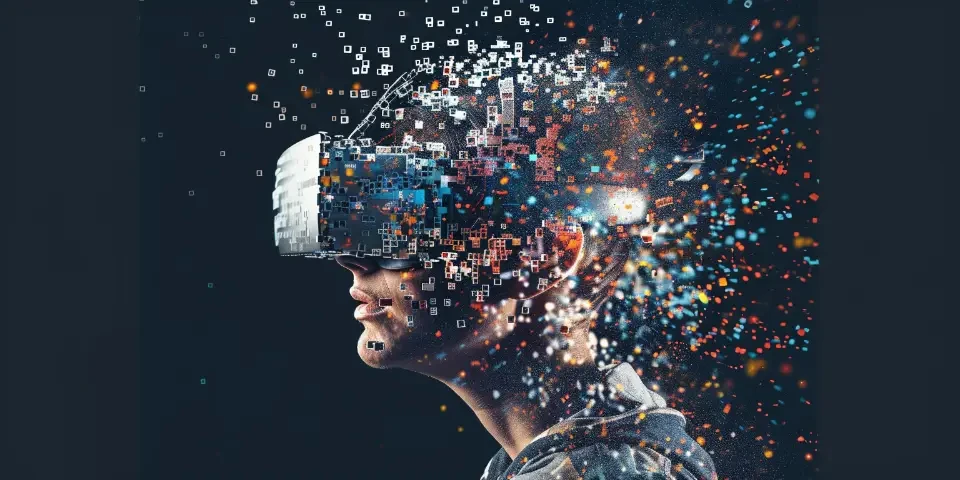AI-Powered Personalized Learning The Next Generation Education Experience
Education has seen significant advancements in recent years, and one of the most promising developments is the integration of artificial intelligence (AI) into personalized learning. AI-powered personalized learning takes traditional education approaches to the next level by tailoring educational experiences to individual students' needs and abilities. This article explores the various aspects and benefits of this revolutionizing educational experience.
1. Adaptive Learning Platforms
AI-powered personalized learning relies on adaptive learning platforms that dynamically adjust the educational content based on each student's progress. These platforms leverage AI algorithms to identify knowledge gaps, suggest appropriate learning materials, and provide real-time feedback.

Adaptive learning platforms, such as Khan Academy and Duolingo, offer a wide range of interactive lessons and assessments that adapt to the user's skill level. By continuously analyzing students' performance, these platforms can deliver personalized learning paths, ensuring optimized learning efficiency.
2. Individualized Instruction
AI-powered personalized learning enables individualized instruction, allowing students to learn at their own pace and according to their unique learning styles. Traditional classroom environments often struggle to cater to the diverse needs of students, but AI makes it possible to provide personalized content and support to each individual learner.
With AI, educators can create customized learning programs that align with each student's strengths and weaknesses. This ensures that students are challenged enough to foster growth without feeling overwhelmed or bored. Whether it's through adaptive quizzes, interactive simulations, or multimedia presentations, personalized instruction keeps students engaged and motivated.
3. Intelligent Tutoring Systems
Intelligent Tutoring Systems (ITS) are AI-powered tools that emulate human tutors, providing personalized guidance and support to students. These systems analyze students' performance, identify misconceptions, and offer targeted interventions to enhance learning outcomes.
One popular ITS, Carnegie Learning, combines cognitive and learning sciences with AI technologies to deliver effective and customized tutoring experiences. It addresses students' gaps in knowledge, offers hints and explanations, and tracks progress to optimize the learning journey.
4. Enhanced Student Engagement
AI-powered personalized learning goes beyond one-size-fits-all teaching methods and fosters student engagement through interactive and immersive learning experiences. Through gamification, multimedia presentations, and virtual reality applications, students become active participants in their education.
For instance, tools like Nearpod and Classcraft integrate AI to bring gamified elements into the classroom, allowing students to collaborate, compete, and earn rewards. By transforming learning into an enjoyable experience, these platforms significantly increase student engagement and knowledge retention.
5. Continuous Assessment and Feedback
In traditional educational settings, students typically receive limited feedback on their performance. AI changes this by enabling continuous assessment and feedback throughout the learning process.
AI-powered assessment tools, such as Gradescope and Turnitin, automate grading processes, providing students with immediate feedback on assignments and exams. This real-time feedback helps students identify areas of improvement, enhancing their learning outcomes and study strategies.
6. Personalized Recommendations
AI algorithms analyze vast amounts of data about students' learning behaviors and preferences to provide personalized recommendations on suitable learning resources. This enables students to explore diverse topics, discover new interests, and deepen their understanding of subjects.
Platforms like Coursera and edX leverage AI to recommend courses based on learners' past performance and interests. These personalized recommendations ensure that students continue to be intellectually challenged while pursuing their educational goals.
7. Data-Driven Decision Making
AI-powered personalized learning generates valuable insights by analyzing large datasets of student performance. These insights help educators make data-driven decisions to improve teaching methods, curriculum design, and learning interventions.
By analyzing student data, educators can identify trends, adapt teaching strategies, and allocate resources effectively. This iterative process of data analysis and adaptation ensures continuous improvement and a more effective educational experience.
8. Ethical Considerations
As AI continues to shape the future of education, ethical considerations come into play. It is crucial to ensure that AI-powered personalized learning respects students' privacy, does not reinforce biases, and maintains a healthy balance between AI and human instruction.
Educators and policymakers must establish guidelines and regulations to promote ethical AI integration and protect students' rights. Transparency and accountability in AI algorithms are paramount to building trust and maintaining a fair and equitable learning environment.
Conclusion
AI-powered personalized learning offers an exciting vision for the future of education, where students receive tailored instruction, continuous feedback, and engaging learning experiences. Through adaptive learning platforms, intelligent tutoring systems, and personalized recommendations, AI empowers educators to meet the diverse needs of students effectively.
It is essential to strike a balance between AI and human instruction and address ethical concerns associated with data privacy and bias. By leveraging the potential of AI, personalized learning can revolutionize education and empower students to reach their fullest potential.
Frequently Asked Questions
Q1: Will AI-powered personalized learning replace teachers?
A1: No, AI-powered personalized learning is designed to enhance the role of teachers, not replace them. Teachers play a critical role in providing guidance, support, and personalized instruction that goes beyond what AI can offer.
Q2: Is AI-powered personalized learning only suitable for certain subjects?
A2: No, AI-powered personalized learning can be applied to various subjects across disciplines. Whether it's math, languages, sciences, or humanities, AI algorithms can adapt to each student's needs and provide personalized learning experiences.
Q3: How can AI address students' individual learning styles?
A3: AI-powered personalized learning platforms analyze various data points, including learning preferences and performance, to tailor content and instructional strategies that align with each student's individual learning style.
References
[1] Carnegie Learning. Retrieved from: https://www.carnegielearning.com/
[2] Khan Academy. Retrieved from: https://www.khanacademy.org/
[3] Duolingo. Retrieved from: https://www.duolingo.com/
Explore your companion in WeMate